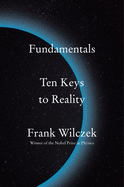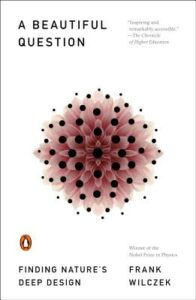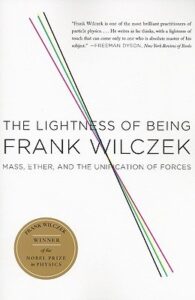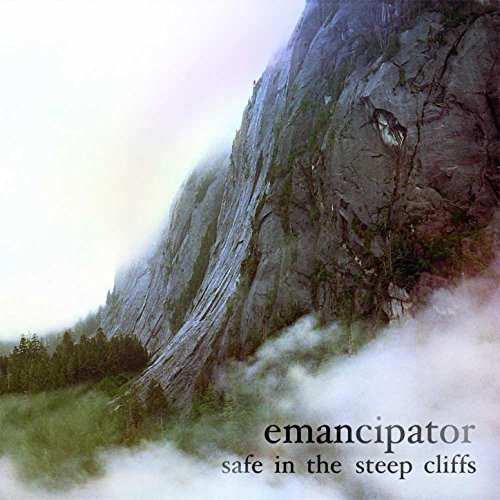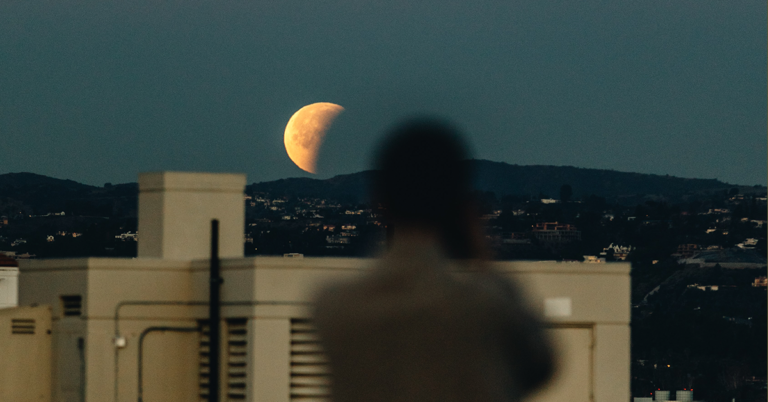Frank Wilczek
Beauty as a Compass for Truth
“Having tasted beauty at the heart of the world, we hunger for more.” These are words from Nobel physicist Frank Wilczek in his book, A Beautiful Question. It’s a winsome, joyful meditation on the question: Do cosmic realities embody beautiful ideas? — probing the world, by way of science, as a work of art. He reminds us that time and space, mystery and order, are so much stranger and more generous than we can comprehend. He’s now written a wonderful new book, Fundamentals: Ten Keys to Reality.

Image by Sally Deng, © All Rights Reserved.
Guest
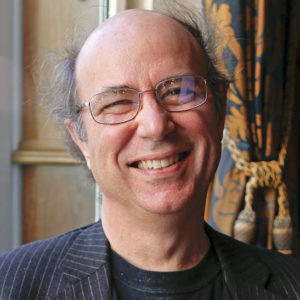
Frank Wilczek is the Herman Feshbach Professor of Physics at the Massachusetts Institute of Technology. In 2004, he received the Nobel Prize in physics. His books include A Beautiful Question: Finding Nature’s Deep Design and The Lightness of Being: Mass, Ether, and the Unification of Forces. His new book is Fundamentals: Ten Keys to Reality.
Transcript
[music: “Seven League Boots” by Zoë Keating]
Krista Tippett, host: “Having tasted beauty at the heart of the world, we hunger for more.” These are words of the Nobel physicist Frank Wilczek in his book, A Beautiful Question. It’s a winsome, joyful meditation on the question: Does the world embody beautiful ideas? — probing the world, by way of science, as a work of art. This physicist reminds us that time and space, mystery and order, are so much stranger and more generous than we can comprehend. My experience of how his mind makes connections took off as we bantered, before our formal conversation could begin.
Frank Wilczek: I just wrote a column for The Wall Street Journal that I thought might be interesting [laughs] to discuss, but …
Tippett: [laughs] What was it about?
Wilczek: It was about an experience I had at the botanical garden in Phoenix, the Desert Botanical Garden. There was an art exhibit called “Fields of Light,” by Bruce Munro, which consisted of acres in the desert on a hillside of lights that slowly pulsated, asynchronously, in different colors. It was the nighttime. It just made me think in a different way about what it might be to wander inside a mind and what thought looks like. And to me, it was awesome, because it brought together so many analogies and metaphors and ways of thinking about thinking and visualizing it. I suddenly thought that this is what thought really is.
Tippett: I’m Krista Tippett, and this is On Being.
[music: “Seven League Boots” by Zoë Keating]
Tippett: Frank Wilczek won the 2004 Nobel Prize in physics for his discoveries about quarks that helped illuminate our understanding of the 4 fundamental forces of nature in the Standard Model of physics — though Frank Wilczek more poetically calls the Standard Model the Core Theory. He’s a professor at MIT, and he grew up in Queens. I spoke with him in 2016.
Tippett: I know you grew up — your father was an electrical engineer radio repairman. And it sounds like you had a fascination with how things worked. There’s this story you told somewhere about a coffee percolator that was one of your early memories. [laughs]
Wilczek: That’s my earliest memory, I’m pretty sure, is …
Tippett: Your earliest memory altogether?
Wilczek: Yes. [laughs] It’s preverbal. I just remember it in pictures. But I remember, very vividly, sitting on my parents’ kitchen floor with a tile pattern, and we had a percolator, an old-fashioned coffee percolator, which had seven pieces. And you could take it — and they were big, so it was something I could manipulate, even though I didn’t have fine motor coordination or anything. And I just was taking it apart, putting it back together, seeing that it could actually be done over and over again [laughs] and that things would fit. And somehow, it was at that moment that I realized that there was a world outside, and me inside, and those were different things. I don’t know, it made a big impression on me, and I still remember it very vividly.
Tippett: You talk about how you were very drawn to questions of meaning and drawn to philosophy early on, and somehow, always making these connections and seeing these echoes and analogies. Even in the story you just told about the — where were you? The Botanical …
Wilczek: The Desert Botanical Garden in Phoenix.
Tippett: Desert Botanical Garden, and so seeing the lights, but then also, thinking about the external world and the internal world. It seems like you’ve always made those connections.
Wilczek: Yeah, I guess I have. [laughs] Something — I’m just obsessed with some things, and that’s definitely one of them — what is the connection between experience, the inner world of consciousness and sensation, and the external world, which kind of impinges on us, whether we like it or not, and has its own structure.
Tippett: I usually begin — or, very early in my interviews will inquire about the religious or spiritual background of someone’s childhood. I feel like this discussion, we just kind of organically leapt into, is kind of an answer to that. And you take up this question in your most recent book, which was published in 2015, A Beautiful Question, which I would almost say — it could almost be a theological question: Does the world embody beautiful ideas? Is that question a variation or an alternative to the question that is more commonly — the question is more commonly stated, “Does the world have meaning?”
Wilczek: Well, to me, it’s clearly related. It’s in the same family. It has kind of the same feeling about it, but to me, it’s much more addressable. And I don’t know what it would mean to say what the meaning of the world is. I’m not sure what an answer could possibly look like. But if we ask this question, which sort of has the same feeling about it — “Does the world embody beautiful ideas?” — I think we can get quite far in finding illuminating answers.
And there’s a lot of positive evidence. It’s not that there’s some metaphysical concept of beauty that rules the world — beauty is a human experience. It’s something that has to do with how humans react to the world and perceive the world. And it’s notoriously thought to be subjective, but it’s not entirely subjective. There’s a very rich history of art objects and music and what people have found beautiful, and literature. And we can compare that to what scientists find in their deep investigation of what the world is, and see — not whether those things coincide; they clearly don’t coincide. There are forms of beauty that are not found in science, and there are facts about the world that are not beautiful. But there’s a remarkable intersection, I think, and a remarkable overlap between the concepts of beauty that you find in art and literature and music, and things that you find as the deepest themes of our understanding of the physical world.
Tippett: And I don’t think I’ve interviewed any, say, group of people across my years of interviewing who use the word “beauty” more or who have a deeper reverence for beauty than people who work with mathematics.
Wilczek: And I’m one. [laughs] And several of the most important episodes in my scientific career have been driven — not in a vague way, but very concretely — by wanting to make things beautiful. I remember almost a magical moment when I was speaking with one of my colleagues after a seminar, trying to figure out what this seminar meant. It was about fractional charge, and it was a very difficult seminar to understand. Neither of us really did. But then I tried to write an equation, which captured the way it should work, and the equation almost wrote itself. And it was just so pretty that I knew it had to be correct, and that turned out to be the key to a very important investigation that — it’s still ramifying through physics.
Tippett: I think, when one talks about mathematical beauty or beauty as revealed through mathematics and physics, that can sound lofty and abstract to many people. You make a wonderful observation that I think is just so useful in terms of letting people in, which is that our brains are attuned to the deep structure of the physical world in ways that we don’t even — can’t even begin to grasp. And when it comes to beauty and our perception of beauty — our perception of reality, in fact; our perception of the physical world — you say: “Each of us is born to become an accomplished, if unconscious, practitioner of projective geometry.” [laughs] So explain what you’re describing there.
Wilczek: That’s right. That’s one of our most impressive abilities that humans, children, do routinely without thinking about it — although they have to learn it, or parts of it — and yet, we have not been able to teach sophisticated computers to do it. That is, humans do an astonishing feat, routinely and very quickly. That is, they interpret the messages coming through little, little openings in their eyes and project it on a two-dimensional screen, the retina at the back, which then, the light gets turned into electrical signals. And from that crazy, scrambled encoding, we reconstruct an external world of three-dimensional objects in space. We recognize that if we move our head, they’re still the same objects, and we determine these effortlessly. We do a job which is — it literally is impossible. We use all kinds of tricks and rules of thumb to guess what the external world is, and sometimes it’s wrong, with optical illusions, but basically, in most circumstances, we do this remarkable feat of reconstructing a three-dimensional world from two-dimensional information that’s all scrambled up with things on top of each other.
Tippett: Yeah, through these eyes that we just take for granted — completely and utterly take for granted. [laughs]
Wilczek: We take it for granted, but nature has equipped us with extraordinary abilities in geometry. I knew this abstractly, but in preparing the book I decided I should actually learn something about [laughs] perspective and projective geometry. And it was a real revelation. I’m terrible at drawing, just terrible — the worst person I’ve ever met. But I [laughs] learned some of the rules of perspective that artists use, and they are just so beautiful. They’re so elegant. And using them, I was empowered to create accurate buildings and town squares and so forth. I just astonish myself. And I wasn’t able to reproduce it consciously, but now, with knowledge, I was able to do it. And it was just magic to suddenly see these things emerging from geometric constructions, and it looks like the external world. And it had a tremendous effect, historically and psychologically, when these rules were discovered in the Italian Renaissance. It’s one of the things that really powered the Renaissance — the artists took enormous joy in their sudden ability to render the world the way it actually looked.
Tippett: That is so interesting, again, to point that out, that what we — most of us, it would be impossible to think about creating perspective, which is, essentially, creating a three-dimensional image on two-dimensional space. But we don’t realize that we do that when we open our eyes, constantly, without being aware of it, and how complex and amazing that is.
Wilczek: Yes. And people who started to work on artificial intelligence thought at the beginning that would all be trivial, because it’s so easy, [laughs] we don’t have to work very hard. They thought that would be very easy, whereas, say, teaching a computer to play chess would be very difficult. But it’s turned out to be just the opposite. The things that we do unconsciously and are part of our daily lives and are important for survival are things we’re really, really good at.
[music: “Toy Division” by Rhian Sheehan]
Tippett: I’m Krista Tippett, and this is On Being. Today, exploring beauty with Nobel physicist Frank Wilczek.
[music: “Toy Division” by Rhian Sheehan]
Tippett: So symmetry is an important notion in the perception of beauty, for the human brain, and I want to tease out — I believe, and I want to make sure I get this right, that you’re saying that Einstein’s — what you call his “new style in physics” — helped bring symmetry home, in a sense, or helped us understand the importance of symmetry, or symmetry as an aspect of reality. How would you say that?
Wilczek: Well, “symmetry” as used in common language is kind of a vague word. It means “balance,” “harmony,” “goodness.” [laughs] Somehow, it has nice connotations.
Tippett: Yeah, I liked the way you said it’s also “fairness.”
Wilczek: But it’s vague.
Tippett: We even — symmetry, ethical symmetry, we look for.
Wilczek: Fairness, yes. Yes, proportion. But in science, we need to have a more precise concept. And the concept that we use that’s more precise, that has something in common with the common usage but is a special case of it and gets amplified in different directions, is that symmetry in physics and mathematics means change without change.
Now, that seems kind of mysterious and mystical, but it means something very concrete. Einstein’s theory of relativity, it says that if you ride by the world at a constant velocity, any constant velocity, although things will look different — so some things will be coming at you, other things will be moving away, faster — that the same physical laws will apply to this new configuration of the world. So, you can make a change in the way everything looks, [laughs] but you don’t change the laws.
A simpler example might be helpful here. We’re used to the idea that a circle is a very symmetrical object. What does that have to do with change without change? Well, a circle is an object that you can rotate around its center by any angle, and although it might have changed, and every point, in fact, moves, the circle as a whole does not move, and that’s what makes it symmetric. If you take a more lopsided shape and you rotate it, there’s no way — it won’t come back to itself until you go all the way around. So if you take an equilateral triangle, it’ll come around after you turn it one-third of the way. So it has some symmetry, but much less than a circle. So that’s a concept, change without change — things that might have changed, but don’t — that picks out special kinds of objects, like circles.
It turns out that very symmetric laws seem to be the laws that nature likes. Nature likes laws and likes equations that support enormous possibilities for transformation, where things look different, get different names, and different situations are described, but the same equations apply.
Tippett: So is it right? Did I read that you owned and lived in the house Einstein lived in, in Princeton?
Wilczek: Yes. Yes, throughout the 1990s we did.
Tippett: So that would have been the house where he invited Marian Anderson to come stay when she came to sing in Princeton, and it was a segregated city, and she couldn’t stay in any of the nice hotels.
Wilczek: Yes, that was the house, all right.
Tippett: Amazing.
Wilczek: It’s a nice house. [laughs]
Tippett: Good. I’m glad she had a nice place to stay, and so did you.
Wilczek: It doesn’t look large from the street, but it’s very, very long. It’s a big house and has a beautiful yard. Yeah, I liked it very much.
Tippett: I want to actually point out that you — there was a piece on December 31, in The Wall Street Journal, where they asked a number of thinkers what to expect in 2016 — and that you predicted that we would soon detect gravitational waves, which again, you, I feel, more poetically called “tremors in spacetime.” [laughs] And in fact, you were proven correct, very soon.
Wilczek: Yes. Yeah, and I didn’t have any inside information…
Tippett: No.
Wilczek: …but I did know what was publicly available; that this instrument was going to acquire enough sensitivity to plausibly detect sources that were very likely to be out there in the universe. So I wasn’t completely confident that it would be found in a year; I was very confident it would be found in a few years, but as it happened, it was a matter of months after I’d made the prediction. And it’s a great event for physics and a culmination of a great —
Tippett: Was that an exciting day for you? What was that like?
Wilczek: Yeah, definitely. It was a beautiful, a poetic day, because many narratives come together. It was 100 years ago that Einstein, from very abstract intuitions of beauty and coherence, wrote down the modern equations for gravity, his general relativity theory, which has been the pattern for many of our successful theories later, including our theory of the strong interaction. And this gave a new picture of what gravity is due to, and it’s due to warpings in space and time — extraordinary concept, that space and time themselves can be bent. And then, as part of it, that excitations in space and time can take on a life of their own — those are gravitational waves that move out, spread like ripples on a pond, to far away. And so, in principle, things that happen way over there can transmit through these waves, information, very far away — like light waves, but it’s a different kind of thing you’re sensitive to.
But the effects were predicted to be so small that Einstein himself had no hope that they would ever be detected. It’s another part of the extraordinary progress in physics that we’ve learned — the technology has advanced so that we can detect extraordinarily small, subtle effects. But the fact that physics has advanced to the point where you can master nature so well as to detect such tiny effects reliably is just an extraordinary tribute to how well we’ve come to understand many things about the world.
Tippett: And in your lifetime, that advance and that change.
Wilczek: Yes. Yeah, no, it’s actually scary. It’s a hundred years back to the origin of the prediction of gravitational waves, and I’ve lived through more than half of that. [laughs] I still think of myself as a kid, but it adds up, you know? [laughs]
[music: “Steep Cliffs” by Emancipator]
Tippett: After a short break, more with Frank Wilczek. You can always listen again, and hear the unedited version of every show we do on the On Being podcast feed — wherever podcasts are found.
[music: “Steep Cliffs” by Emancipator]
Tippett: I’m Krista Tippett, and this is On Being. Today, with an exploration of beauty, the deep structure of reality, and deep truths in the human everyday, with Nobel physicist Frank Wilczek. He’s just published a wondrous new book called, Fundamentals: Ten Keys to Reality. I interviewed him after his last book, A Beautiful Question, which is a long meditation on the question: Does the world embody beautiful ideas?
Tippett: So somewhere you say — this is, again, such helpful imagery — you say Einstein described space time as elastic and not rigid, and then you describe it as a “ubiquitous cosmic Jell-O.” It’s an image that’s helpful.
Wilczek: I’d like to try to think very concretely, although to really be accurate in modern physics, we deal with very abstract concepts that are far removed from daily life. But I always try to visualize it in many different ways, including things that are very low-brow.
Tippett: Right — [laughs] like Jell-O.
Wilczek: Yes.
Tippett: OK. So let’s go deep and profound again. You talk about Niels Bohr’s notion of complementarity as something you’ve come to treasure. And he was, of course, a Danish physicist and philosopher, and an interlocutor of Einstein, [laughs] you could say.
Wilczek: Oh, he’s one of the great pioneers of quantum mechanics.
Tippett: Yeah, and quantum mechanics.
Wilczek: He’s one of the few people you could think of as Einstein’s peer.
Tippett: Right, and they had a complex relationship in terms of, it seems, huge reverence for each other, but also, often, disagreeing profoundly.
Wilczek: Yes. They both had deep intuitions about how the world should work, and they weren’t the same intuitions. [laughs] To oversimplify quite a bit, I would say Niels Bohr had a very humanistic interpretation. He thought that physics was about describing human knowledge of the world, whereas Einstein thought more at the level of God’s knowledge. He often talked that way a lot.
Tippett: It’s very majestic.
Wilczek: Very majestic, and humans are just observers of this pre-existing harmony, and they should be awestruck and humble. Their role was passive, not —
Tippett: But almost — to that give and take, that seeming conflict, which, in fact, was as much collegial as it was conflicted — you have such an interesting way of talking about complementarity that, I feel, is evocative in human terms, as well as scientific terms. And I’d just like to — so one of the things you say is that “In ordinary reality and ordinary time and space, the opposite of a truth is a falsehood.” But, you say, “Deep propositions have a meaning that goes beyond their surface.” This is so interesting. “You can recognize a deep truth by the feature that its opposite is also a deep truth.”
Wilczek: [laughs] Yes.
Tippett: So one of the conflicts was, is light a particle or wave? And, in fact, it is both.
Wilczek: It’s both, and…
Tippett: It’s both, right.
Wilczek: … sometimes it’s useful to think of it one way, sometimes it’s useful to think of it another way. Both can be informative in different circumstances, but it’s very difficult — in fact, impossible — to apply them both at once.
Tippett: To apply them both at the same time.
Wilczek: And I think that’s the essence of complementarity, that you have to view the world in different ways to do it justice, and the different ways can each be very rich, can each be internally consistent, can each have its own language and rules, but they may be mutually incompatible. And to do full justice to reality, you have to take both of them into account.
Tippett: Somewhere you say, “Complementarity is both a feature of physical reality and a lesson in wisdom.” And I think just what you just said about reality is equally true of — and I know you have to be careful to do too much of this stretching these things, but it’s equally true of the human condition.
Wilczek: Oh, very much so. [laughs] Oh, I think so. When people ask me what my religion is, I say I’m a complementarian.
Tippett: [laughs] That’s right.
Wilczek: I believe that it’s really interesting and really fun and really informative, and the right thing to do, to be able to look at things in different ways and appreciate their different ways of looking at things that each have their own validity. And they may conflict if you try to apply them both at once, but OK, that’s fine. You apply one at a time [laughs] and try to appreciate both.
Tippett: And in terms of this — I have spoken with physicists who will say: Of course, they take their daily perceptions seriously on some level; they understand that, essentially, what we perceive to be reality is full of illusion, and including the perception that we have freedom and choice. But you also present this as another piece of complementarity — two things that, in fact, are true, but hard to speak about in the same moment — that you, as a human being, are nothing but a collection of particles and light; and you are a thinking, feeling human being. [laughs]
Wilczek: Yes. I think those are both true. [laughs] And they are different ways of organizing our experience of the world, and each one tells us important things. Each one can be very useful in certain applications. But they’re very difficult to apply simultaneously, because they’re just from different worlds.
Tippett: Then there’s some virtue, some intelligence in living with that — that seeming impossibility or contradiction, which I guess human beings don’t like, right? [laughs] We don’t like that kind of uncertainty.
Wilczek: Well, I like it.
Tippett: Yeah. [laughs]
Wilczek: You can come to like it, if you — and that’s — as I said, I think that’s a bit of wisdom. One aspect of it is just to be able to put yourself in the other fellow’s shoes.
Tippett: Yes.
Wilczek: But it applies it much more broadly.
Tippett: You use words a lot like “paradoxical,” “crazy,” [laughs] “strange” to describe reality and what you study. And it seems to me that those words also go together with beauty, that the richness of it is also in notions like that.
Wilczek: Yes. Well, one of my notions about the human concept of beauty is that beautiful things are things that evolution has primed us to enjoy and want to come back to and feel pleasure in experiencing. And one thing that has that nature is learning things that are useful in getting around in the world. So, things we can learn from, new experiences that can help us in other endeavors, give us pleasure. And learning about the world, and learning about how strange it is, and then …
Tippett: And being taken by surprise in ways that advance us that we couldn’t have imagined before.
Wilczek: Being taken by surprise, learning things, is expanding your concepts, your power, your appreciation of the world. So I think that is beautiful. It’s intrinsically beautiful to learn things.
Tippett: It’s pleasurable, yeah.
Wilczek: Especially if they’re surprising, because then you get to expand your mind. If you think about what happens at a modern particle physics accelerator like the LHC, or even better, its predecessor, the LEP, the electron positron collider — what happens at an accelerator like that is that people do the same thing over and over again. They collide electrons and positrons with exactly the same properties, exactly the same energy, many, many times, and you get different results each time. [laughs] You get — different kinds of things come out of the reactions. So, Einstein said — or was reputed to say, I guess it’s disputed whether he actually said it — “Insanity is doing the same thing over and over again and expecting a different answer.”
Tippett: It’s so good.
Wilczek: But that’s exactly what happens! [laughs]
Tippett: Yes.
Wilczek: That’s exactly what happens.
Tippett: Even with this, with him.
Wilczek: Right. [laughs]
Tippett: You say, in your book, A Beautiful Question, that if there is a creator, if you were to ponder it in that way, that that creator is “an artist above all.”
Wilczek: Yes, that’s, I think — yes, that’s what I think may be the most poetic way of stating this conclusion that the world, in large part, does embody beautiful ideas; that if you regard the world as a work of art — first of all, it helps you understand things, and secondly, it’s a pretty good work of art. It has tremendous beauty. It has tremendous creative power in using a few principles to make elaborate structures. Yeah, it’s a wonderful thing.
Tippett: I was thinking, as I was preparing to speak with you, that I had an interview years ago, it was really in the early post-9/11 years, with a great Muslim legal scholar — and jurisprudence in Islam is what theology is in Judaism and Christianity, and he was a legal scholar — and then a rabbi. And there is a notion in Islam that beauty is a core moral value. Are you familiar with that?
Wilczek: I’m not, but what I am familiar with is that mosque interiors, to me, are among the most exuberant expressions of symmetry and celebrations of concepts that turn out to be central to the deep description of the world. It’s very impressive. And of course, they’re just beautiful to look at.
Tippett: Right. But I think it’s a reflection of a deep piece of theology. And the rabbi came back with this notion that’s in the Hebrew bible, about the beauty of holiness. And we had this amazing discussion that night about taking on the very serious and heavy conflicts in which religion is not just involved, but implicated, but imagining beauty as a litmus test of whether something is of God. And then they had a very complex, actually, understanding of beauty — that it’s creative and not destructive; that it’s a beauty of wholeness, not fractionalizing.
Wilczek: Well, I think it would be a very healthy thing, as well as a very rewarding thing, for religious traditions to focus on, where they’d find a lot of common ground — and also, rich possibilities — in exploring the concept of beauty. And I think it would also be very helpful and very healthy and very stimulating to bring in science there, because science, especially modern physics, has taught us some really, really surprising and wonderfully imaginative and beautiful and fantastic things that are aspects of the actual, physical world — and, presumably, in a religious interpretation, are aspects of God’s work — that are by no means obvious, and you really have to expand your mind to appreciate them. And, to me at least, it gives a real feeling of spiritual growth and depth when I deal with these concepts.
[music: “Not Here, Not Tonight” by Near the Parenthesis]
Tippett: I’m Krista Tippett, and this is On Being. Today, with Nobel physicist Frank Wilczek.
[music: “Not Here, Not Tonight” by Near the Parenthesis]
Tippett: There’s a passage in A Beautiful Question — I just wanted to read it. It’s a scientific corollary to that idea of beauty as a litmus test, as a guide. Even for you, in terms of what science — science’s limits and imperfections, you say, “Despite its overwhelming virtues, the Core Theory is imperfect. Indeed, precisely because it is such a faithful description of reality, we must, in pursuit of our Question, hold it to the highest esthetic standards. So scrutinized, the Core Theory reveals flaws. Its equations are lopsided, and they contain several loosely connected pieces. Furthermore, the Core Theory does not account for so-called dark matter and dark energy. Although those tenuous forms of matter are negligible in our immediate neighborhood, they persist in the interstellar and intergalactic voids, and thereby come to dominate the overall mass of the Universe. For those and other reasons, we cannot remain satisfied.” And then you say, “Having tasted beauty at the heart of the world, we hunger for more. In this quest there is, I think, no more promising guide than beauty itself.”
Wilczek: Yes. Well, I mean, I put my money where my mouth is. [laughs] I have theories for what the dark matter is that I think are certainly driven by beauty; and, well, we’ll see if they’re true. And I have theories about states of matter that I’m very confident are correct. They’re driven by beauty, but haven’t yet been verified experimentally. It’s what drives a lot of my work in physics, is trying to get more beautiful equations and a more coherent description of how things work, and it’s been successful in the past, quite a bit. And so it has a good record, not only in my work, but in the work of my community and colleagues. So I think we’re on a roll, and let’s hope it keeps going.
Tippett: George Dyson said something when he was looking at your book; that you’re in the lineage of natural philosophy that was before, what we now just call “science.” And I think you …
Wilczek: Yes, I feel that way. [laughs]
Tippett: Do you? And I really hear that.
Wilczek: I’m a throwback.
Tippett: Yes. Yes. And that, in fact — that gets a bit at what we spoke about in the very beginning, this quest for meaning or these questions of meaning that helped draw you into science, and that, in fact, that is there on scientific frontiers, and it’s often not acknowledged or analyzed.
Wilczek: Well, I think it has dangers. It has dangers of woolly thinking and wishful thinking and denial of facts that you don’t like. But I think it’s throwing out the baby with the bathwater not to realize that that’s really a central element of human life and should be a central element of the scientific worldview, to try to understand things whole and bring everything together and use what you learn about the physical world to inform your view of the world as a whole. You have to use it, perhaps, in the spirit of complementarity, not try to…
Tippett: Tie it up neatly.
Wilczek: … not try to use it to deny other ways of looking at things, but to appreciate them all in different aspects and enrich your concept of what reality is.
Tippett: I think it’s woolly if you are working with a simplistic form or definition of the search for meaning…
Wilczek: Exactly.
Tippett: … just like beauty can be a woolly concept if you’re using it simplistically and superficially.
Wilczek: Exactly. So the challenge is to use them creatively and precisely and to stretch them and test them and push them as hard as you can and see if they keep holding up and keep working and keep being creative and fruitful.
Tippett: For just our last few minutes here, I want to — I pulled out some observations you make, some insights you have about this way that you see the world. You see reality and truth, and also, are always, I think, in some way bringing together these profound human quests for both understanding reality and having a sense of meaning. And I just wonder if you’d just bring us in, a little bit, to this way of seeing. [laughs]
So for example, you talk about how Newton had described each spectral color as distinct. But in the next chapter of physics there was this discovery of, as you say, “a deep unity beneath and supporting the diversity of appearance.” And you said, “All colors are one thing.” This is what we learned: “All colors are one thing, seen in different states of motion. And that is science’s brilliantly poetic answer to Keats’ complaint that science unweaves a rainbow.”
Wilczek: Yes. Well, this comes back to the theory of relativity. So what you learn in the theory of relativity is that when you look at a light beam of a different color, and you’re moving towards it, it gets shifted towards the blue end of the rainbow. So if it was red, it might become yellow or green or blue — or ultraviolet, if you’re moving fast enough. And if you’re moving away, there’s what’s called the red shift. Things move towards the opposite end of the rainbow.
So all these colors can be derived from one of them by moving at an appropriate velocity. So really, the existence of one implies the existence of all the others.
Tippett: Of all of them, right.
Wilczek: And the properties of one imply the properties of all the others. So in a really deep sense, they are the same thing. But in a complementary sense, if you don’t move, they’re all different. [laughs]
Tippett: I said to you, earlier on, that your question, “Does the world embody beautiful ideas?” almost could sound like a theological question; for example, the theological observation of a Reinhold Niebuhr, one of the great public theologians of the 20th century, talking about how the great struggle of human life is this anxiety that we feel because we’re torn between our experience of mortality and our perception of eternity. And you said, “We humans are poised between microcosm and macrocosm, containing one, sensing the other, comprehending both.” [laughs] What are you saying there?
Wilczek: Well, I’m saying that by understanding the world better that you gain a new perspective on what you are and a different feeling about your place in reality that’s more realistic; also, richer. And there’s good news, and there’s bad news, but in any case… [laughs]
Tippett: Right, it’s challenging.
Wilczek: … it’s something you can — by understanding it deeply, you can certainly enrich your experience of the life you’re given.
Tippett: You also cite somewhere what you say is, for you, one of the most beautiful passages in literature, from the 20th-century physicist, Hermann…
Wilczek: Hermann Weyl, yes.
Tippett: … Weyl on spacetime. He’s talking about spacetime from a “God’s-eye view”: “The objective world simply is, it does not happen. Only to the gaze of my consciousness, crawling along the lifeline of my body does a section of this world come to life as a fleeting image in space which continually changes in time.” That’s a very — it’s almost a mystical image. That the world is, it does not happen, is quite a remarkable thing to try to take in.
Wilczek: Yes, but it’s really, I think, very much what the theory of relativity suggests. It’s really basic, to think of spacetime as a whole, because there are relationships between things that happen in different parts of space and at different times that are significant in forming the laws and the regularities of the world that are very, very difficult and awkward to express if you carve the world into time slices, as we experience…
Tippett: Right — past, present, future.
Wilczek: … and regard them as separate and unrelated, or as snapshots, each a thing in itself.
Relativity teaches us to think of spacetime as a whole and that it’s very unnatural to divide them. So it leads, I think, very much to the worldview that Hermann Weyl was alluding to there, that the world — that is, spacetime — it simply is. It does not happen. It already encompasses all times.
Tippett: So this idea that we don’t feel in our bodies. [laughs]
Wilczek: Yes. We humans have the fate — which is a gift — that we can get beyond the limitations that nature imposed, that evolution imposed on us. We really can get beyond that by thought. We have the gift of being able to understand things and go deeper and get beyond common perceptions. We can use instruments. We can use logic. We can learn from each other and traditions, and there are many surprises that get revealed. And it just enormously deepens life to participate in that.
Tippett: I listened to an interview you gave on the BBC. It was actually a music program. Do you remember this?
Wilczek: Oh, yes…
Tippett: It was lovely.
Wilczek: …well, I think so. [laughs]
Tippett: Well, don’t worry, I’m not going to ask you to quote back from it.
Wilczek: Oh, I know — yes, I know what you mean. Yes, where we went through different favorite pieces of music.
Tippett: Different favorite pieces of music. And at one point, you said — I think you were quoting Newton — that how he said he felt, at some point in his life, is how you feel. It was an analogy of feeling like a boy on a beach. Do you remember that?
Wilczek: Yes. Well, it’s a very striking quotation of Newton, and I think, very sincere on his part. So he said that — I think I can quote it, close to literally — he said, “I know not how I appear to the world, but to myself I appear like a boy on a beach who came upon some particularly beautiful pebbles, while the great ocean of the unknown lay before me.” So he realized that he understood some things very well, and he understood what it meant to really understand something, but part of that is realizing that you don’t understand a lot of things. And there’s a profound humility that comes from really understanding something, because then you understand what it means to really understand something. [laughs] And you realize how much is missing that is different.
Tippett: [laughs] And you feel that way as a physicist at this juncture in physics, which is so far from what Newton could have imagined, also.
Wilczek: Yes. We’ve done very, very well. Physics is pretty good. [laughs] Physics, we’ve attained a high level, although there are certainly big holes in our understanding. But when it comes to the mind, when it comes to understanding society, our understanding is much, much less satisfactory and, I’m fully aware of that.
Tippett: So just in closing, I wonder if you could just start to talk about how would you begin to reflect on — through the science you’ve done, and especially, I think, this focus on your sense of beauty and beauty as a guide, as a litmus test — how do you think you move through life differently, ordinary space and time, the flawed way we perceive it?
Wilczek: Well, I think it’s made me much more tolerant, [laughs] because so many things that bother a lot of people seem trivial to me. [laughs] And the lesson of complementarity, the idea that you can put yourself in the other person’s shoes — it’s very, very helpful in dealing with the human comedy and difficult people.
Tippett: Yeah, that your truth may be true, and my truth is true, and that can just be.
Wilczek: [laughs] Yeah, and I can appreciate you for what you are, even if you’re annoying. [laughs] I can have the fun of trying to understand where you’re coming from, even if I don’t approve of it — having a wider view, an expanded mind.
But then, also, another very important thing is that, several hours a day, I get to think about how beautiful the world is and how it might be made even more beautiful by enriching our understanding of it. So that’s a very special gift, and I’m very grateful that society has paid me to do this, and [laughs] I’ve been able to do it, and that I’ve had some talent and been able to do it in a successful way, in some cases.
Tippett: I think that that sense of fun and delight — it’s not an austere beauty. I know there’s austere beauty in mathematics, but a lot of what you’ve been describing, it’s passionate and whimsical.
Wilczek: Yes, well, people have different styles, but yes, mine is that way. I’m a sunny kind of personality. [laughs]
Tippett: But I don’t think that’s the way people think of a Nobel Prize-winning physicist, you know? It’s …
Wilczek: Well, I know enough about Nobel Prize-winning physicists to know that they come in all shapes and sizes. They don’t have all that much in common, not even intelligence. [laughs] But, yeah, but all of them have in common a certain kind of honesty and a certain kind of community, and they’ve all contributed in some significant way to human knowledge and culture and understanding.
Tippett: Do you think they all have some sense of beauty as some kind of guiding principle, even if they wouldn’t express it exactly the way you do?
Wilczek: Yes — I think you have to, at some level, in some form, have the feeling for how things might be different and better in order to make a great discovery. I think you can be lucky, but even if you’re lucky and stumble into something, you’ve got to realize [laughs] that it’s something and that you should pursue it. And that is usually driven by some feeling for beauty and that this thing is significant, that this thing fits into a larger picture. Making a discovery is not just stumbling into something. It’s realizing that you’ve got it and bringing it to the world, and that requires a perception of its beauty.
[music: “Your Panopticon” by Codes in the Clouds]
Tippett: Frank Wilczek is the Herman Feshbach Professor of Physics at the Massachusetts Institute of Technology. He’s the author of many books including A Beautiful Question: Finding Nature’s Deep Design. And he’s just published a wonderful new book that touches on themes of this conversation and more, called Fundamentals: Ten Keys to Reality.
The On Being Project is located on Dakota land. Our lovely theme music is provided and composed by Zoë Keating. And the last voice that you hear singing at the end of our show is Cameron Kinghorn.
On Being is an independent nonprofit production of The On Being Project. It is distributed to public radio stations by WNYC Studios. I created this show at American Public Media.
Our funding partners include:
The Fetzer Institute, helping to build the spiritual foundation for a loving world. Find them at fetzer.org.
Kalliopeia Foundation. Dedicated to reconnecting ecology, culture, and spirituality. Supporting organizations and initiatives that uphold a sacred relationship with life on Earth. Learn more at kalliopeia.org.
The Osprey Foundation — a catalyst for empowered, healthy, and fulfilled lives.
And the Lilly Endowment, an Indianapolis-based, private family foundation dedicated to its founders’ interests in religion, community development, and education.
Books & Music
Recommended Reading
The On Being Project is an affiliate partner of Bookshop.org and Amazon.com. Any earnings we receive through these affiliate partnerships go into directly supporting The On Being Project.
Sponsors
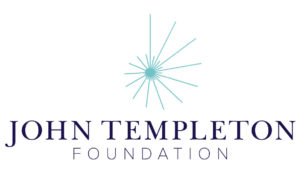
Funding provided in part by the John Templeton Foundation. The Templeton Foundation supports research and civil dialogue on the deepest and most perplexing questions facing humankind: Who are we? Why are we here? Where are we going? To learn more, please visit templeton.org.





